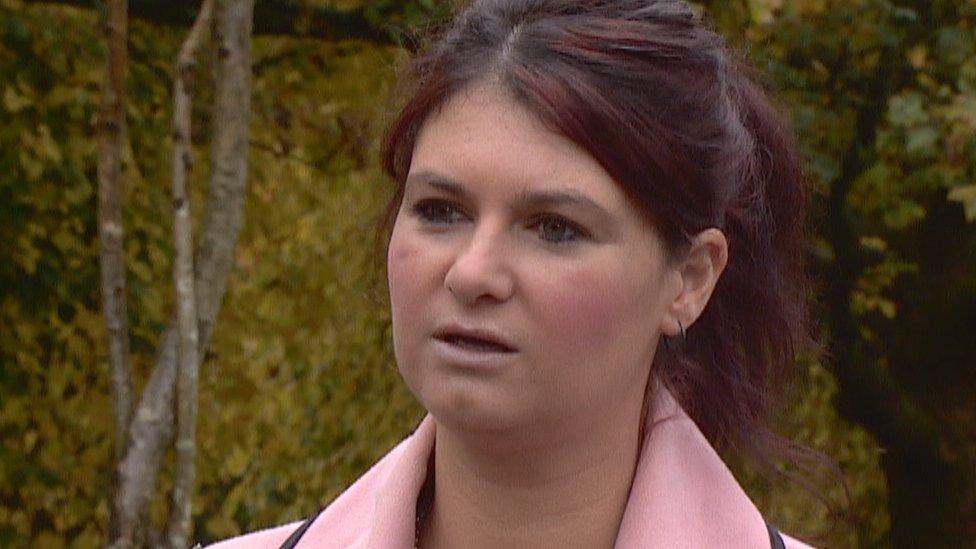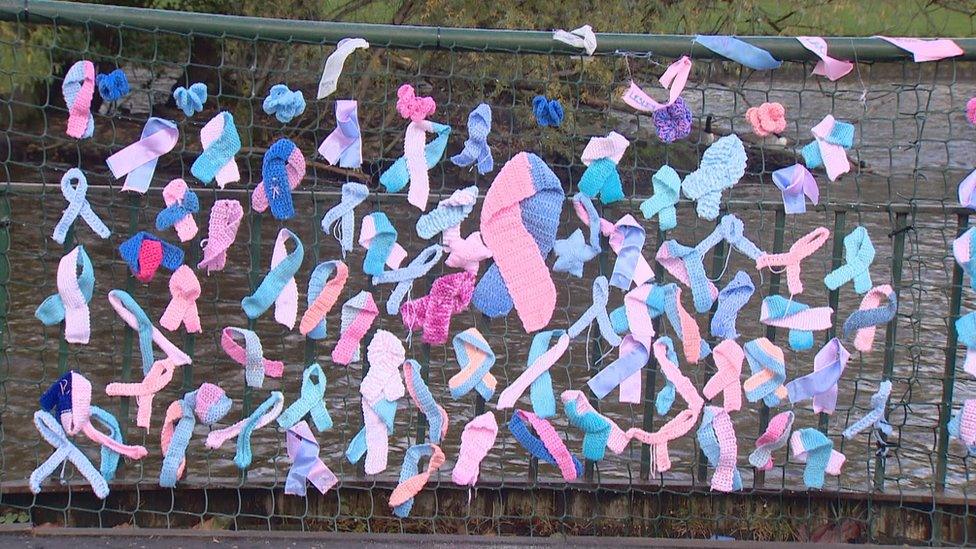'I lost my baby but had to deliver on a labour ward'
- Published

Louise Caldwell is calling for a special unit so women who miscarry do not have to give birth on labour wards
Louise Caldwell will never forget the day she was told the baby she was carrying did not have a heartbeat.
She was 12 weeks into her pregnancy in October last year and had gone for a routine scan.
The news was devastating but to add to her suffering she was then told she would have to deliver the stillborn baby on a labour ward.
"I was traumatised," the mother-of-three from East Kilbride said.
"I couldn't focus on the loss of the baby. I was more worried about getting out that ward. It plays havoc with you mental health."
Louise said that when she arrived at the hospital for the birth, she was let in by a new father who was celebrating the birth of his baby and on his way to tell his relatives the good news.
They then had to pass by walls with photos of babies and thank you cards, before being put in a room at the back of the ward.
"You're passing rooms, and your head knows, your heart knows, that there are women giving birth in these rooms."
Separate unit
Louise has now lodged a petition at the Scottish Parliament calling on the government to ensure that maternity departments have dedicated facilities for women who are experiencing unexpected pregnancy complications.
She said: "I'm calling for a separate unit for miscarriages and stillbirths, so you don't go in the labour ward, you don't go through those dreaded doors, you don't see the live babies, healthy babies and celebrating mums and dads.
"I would like to see a separate unit that's wholly dedicated and has everything it needs so women do not need to be told 'You need to go in the labour ward to deliver'."
Louise's petition coincides with a campaign which has been launched at the Scottish Parliament by MSP Shona Robison, who herself has experienced a miscarriage.
It is calling for support and also for earlier investigations into why women miscarry, with the possibility of prescribing the drug progesterone, which can help some women if they start to bleed during pregnancy.
Currently, it is usually only considered after three miscarriages.

A wall of ribbons in Musselburgh for baby loss awareness week
Maureen Sharkey, from Scottish Care and Information on Miscarriage, said this needs to be changed.
She said: "I see women most days that are traumatised, not just by their experience, but by this idea that they themselves never get an answer.
"You are basically telling women to go and have another couple of miscarriages before anything is done. That's not right. Women need answers and they need much better care."
The Scottish government says it is continuing to see what more can be done to support parents.
Louise Caldwell believes it is time that baby loss was given a greater priority.
"As we speak, there will be a woman who has just been told the news that she has miscarried," she said.
"If she's over 11 weeks, she is on her way to the hospital, to the labour ward, to deliver her sleeping baby.
"So why has there never been a unit? It's not like it is a one-time thing and it is never going to be used again. This is a daily occurrence."